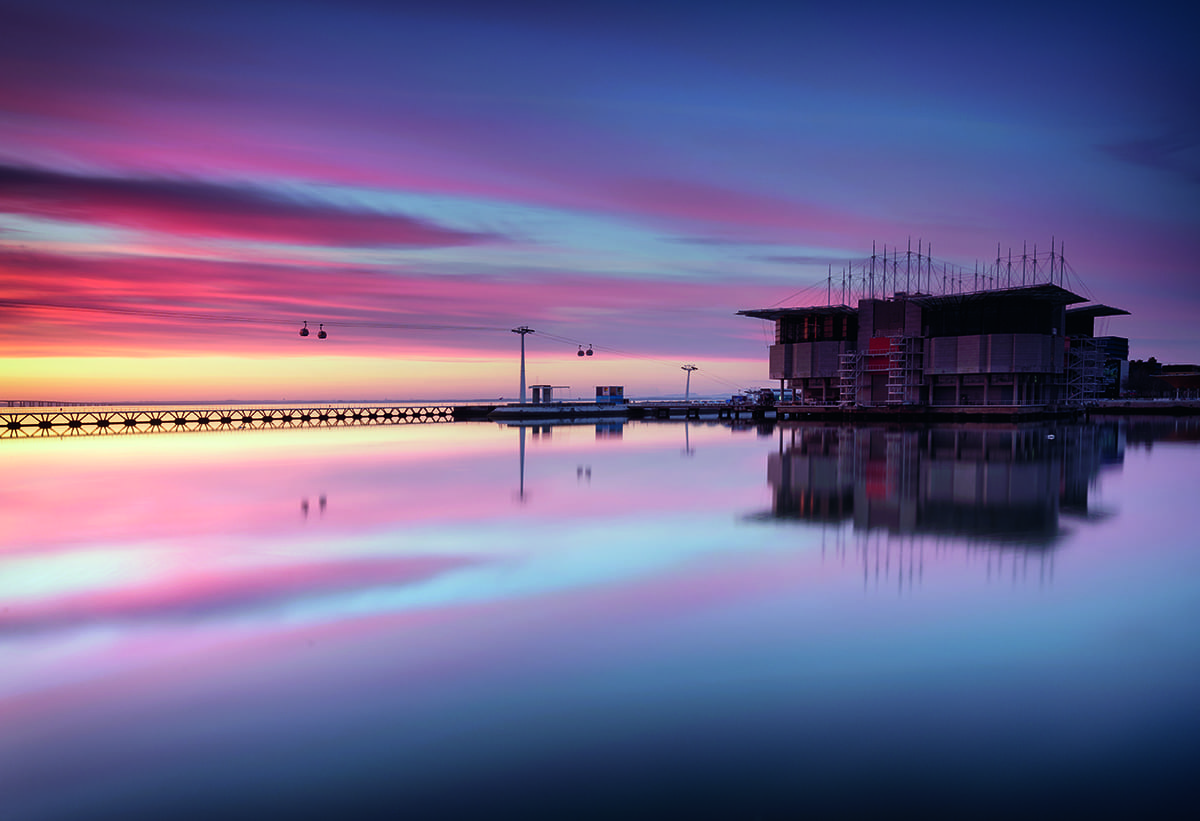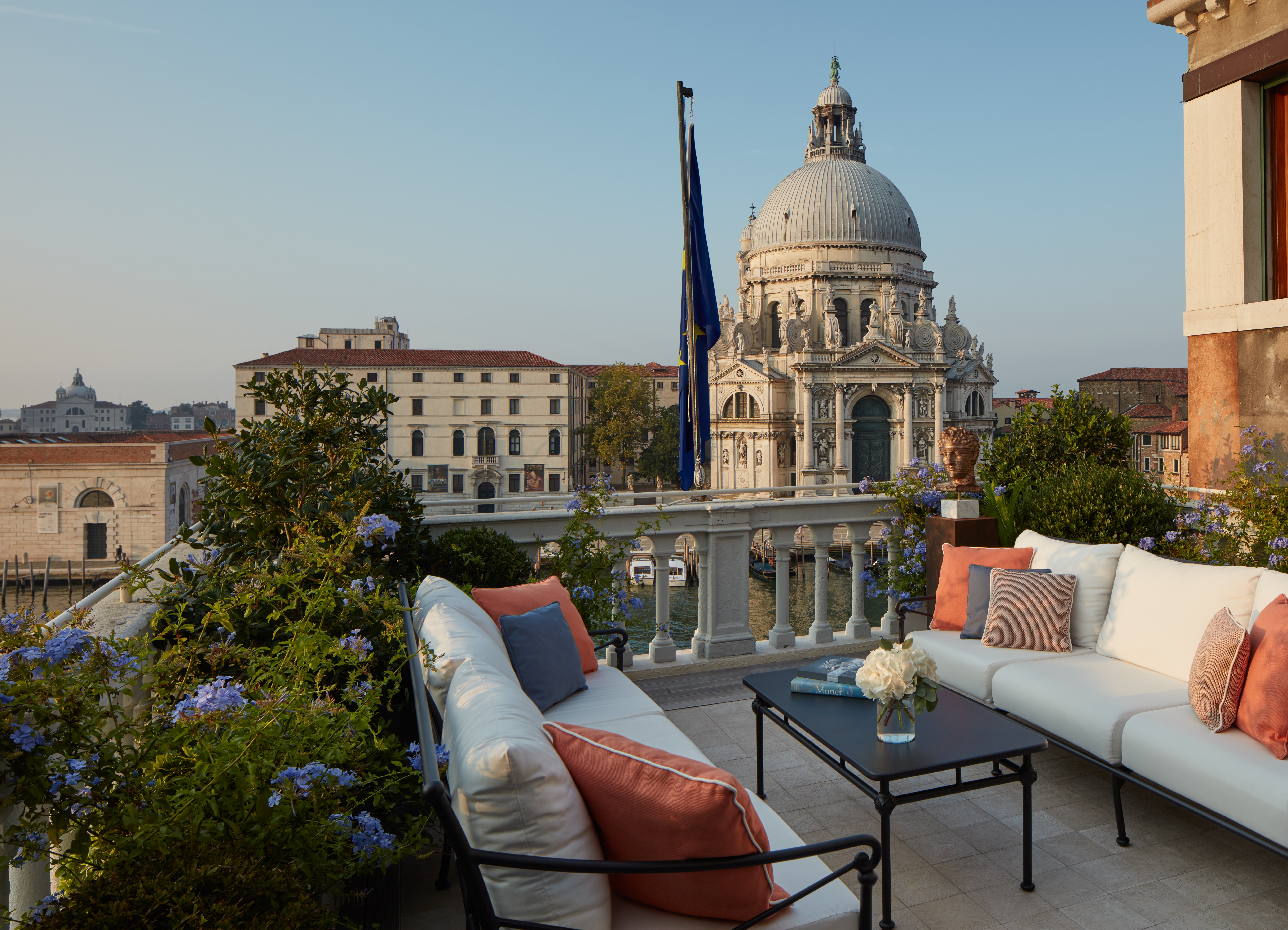
The Lisbon Oceanarium, Europe’s largest informational and educational space on the oceans, is operated by a foundation launched by Portugal’s Dos Santos family. Image by Paulo Maxim
Claudio de Sanctis, the new Global Head of Wealth Management at Deutsche Bank, has been passionate about the oceans since he was young. He now sees the blue economy – the sustainable use of ocean resources for economic growth – as a major and necessary target for investments. LUX speaks with him to discover why
DEUTSCHE BANK WEALTH MANAGEMENT x LUX

Claudio de Sanctis
LUX: How did your interest in ocean conservation arise?
Claudio de Sanctis: It’s something that goes back to my childhood. I was brought up in Italy and school summers there are very long. I spent a good portion of that time in the water snorkelling and skin diving in the Mediterranean and I developed an incredibly strong connection to the sea and the life in it. You carry forward that passion for animals and life in the sea; and then, if you are 47 as I am now and you are still spending your holidays diving in the sea with your family, you witness first-hand the changes that have gone on. You have this passion, you have witnessed this crisis, and there is a part of you that says something needs to be done.
Follow LUX on Instagram: luxthemagazine
LUX: You have personally noticed the environmental changes in the sea?
Claudio de Sanctis: One hundred per cent. If you don’t dive or spend time underwater, the ocean may seem like a beautiful, big, blue expanse and it’s difficult to perceive how it’s changing; it looks as beautiful now as it did 50 years ago. But if you do actually spend time underwater, you then notice that the Mediterranean, for example, has changed dramatically. In the past 40 years, plastic has replaced fish. There were previously a lot of fish, and now there are far fewer and plastic is popping up more and more so it’s now almost impossible to get underwater without seeing a large amount. Also, tropical fish are being seen in Greece, for example, which is a concern as it suggests a very significant change in temperature. If you go to the tropics, the situation is very similar. I have less than 20 years’ experience diving in the tropics, but even in that time, the situation has deteriorated and reefs have disappeared.
LUX: And this is what inspired your focus on the blue economy, which includes ocean conservation and much more besides.
Claudio de Sanctis: That’s correct. There are two fundamental beliefs informing this. One is that institutions such as Deutsche Bank have a fantastic history, if you realise that, for example, we have invested in young artists for the past 40 years for no other reason than social responsibility. While we are a business for profit, doing things because they are relevant and important for the societies we operate in, and because it’s right to be doing them, is important. In that context, we try to do things that are relevant to our clients. I meet clients on a daily basis and more often than not, the discussion will turn to conservation and particularly ocean conservation, and the strongest message I get is one of interest and one of alarm. “How can I help?”, they ask. And that’s how the blue economy comes into play because I believe that the best way to protect the sea is actually to explain to everybody the extraordinary sustainable, long-term economic value it has. There is a lot we need to explain to the world, such as the fact that we breathe because of the ocean; if we damage the ocean beyond a certain point, we won’t be able to breathe air any more. This is very much where education comes into play. And if you understand how the ocean can produce long-term economic development for low-income, underdeveloped countries, that is very relevant. If it’s properly harnessed, the blue-economy potential for a country such as Indonesia is extraordinary. It can lift hundreds of millions of people out of poverty and give them long-term prospects.
LUX: Are there increasing investment opportunities for the blue economy?
Claudio de Sanctis: There are, but there is so much more to be done, which is why the conference we are holding is so interesting. At the moment it is a very thin market but you essentially have three main drivers. The first one is very wealthy families who set up dedicated foundations, which in turn invest long term in ocean conservation and the blue economy. In that space, education plays a massive role. Secondly, if you don’t want to have a dedicated foundation then you can invest in financial instruments. There are more and more liquid financial instruments starting with blue bonds that allow you to contribute capital with a certain degree of return in order to help these underlying themes. The last element that we need to develop is investing directly in companies as more start up with a blue economy angle.
LUX: Will the blue economy become more important within environmental, social and governance (ESG) investing in general?
Claudio de Sanctis: That’s a very good question. My view is that when it comes to ESG, there is no need to put different sub-themes within ESG into competition. There is so much need for more across the board. I can say that interest in ocean conservation and the blue economy is growing exponentially and the awareness of it is growing extraordinarily fast because it’s tied to very important problems. I mean, science has now led us to understand that the oxygen for two breaths in every three comes from the sea, which is something that, five to ten years ago, very few people knew. So if you pollute the sea to a point that that sort of oxygen production slows down, you have a huge problem, because we’re not going to be replanting a lot of forest in the next 50 years. And planting forest takes a long time. Most of the ESG themes are fundamentally interlinked. For example, ocean conservation, blue economy and climate change all interlock.
Read more: Fashion designer Kevin Germanier’s sustainable glamour
LUX: Do companies who may believe they are not responsible for, say, ocean degradation because they are based far from the sea, need to be made aware of this interlocking, that the ocean is relevant to them?
Claudio de Sanctis: That is a very fundamental point. Awareness is everything and in my view, the awareness we need to create is not so much in the companies as in the end consumer. Everybody needs to understand the relevance of this resource, that the ocean is deteriorating and what the consequences of this are. And then on the positive side, what are the opportunities we can extract from the sea if we actually manage it properly? When we talk of the problem of plastic in the oceans, everyone thinks of the poor albatross found with plastic in its stomach, which is a significant problem. It’s an easier problem to grasp than microplastics, which are less visible. But while plastic bottle and bag waste affects marine mammals and sea birds, it is microplastics that affect fish. And the biggest polluting factor in the plastic problem is our clothing. Every time we wash our clothes in a washing machine, particularly anything that has plastic fibres, we release microplastics into the ocean. This is just an example, and this is why we need education, because there is so much more that we need to know and that we need consumers to know because it is they who ultimately drive politicians and purchasing.
LUX: What would you like to achieve through your blue economy programme?
Claudio de Sanctis: In our business we talk to a number of very significant families about what it means to actually have positive impact. So even if we help a few of these families be more aware of the problems and solutions, that is already gratifying for me personally in terms of helping the cause. From a Deutsche Bank point of view, my aspiration is that in the next two to three years when Wealth Management clients think about oceans, they think about ocean conservation and economic development tied to that. And then they think of Deutsche Bank and pick up the phone and speak to their banker here.
Find out more: deutschewealth.com
This article originally appeared in the LUX x Deutsche Bank Wealth Management Blue Economy Special in the Summer 2020 Issue.








